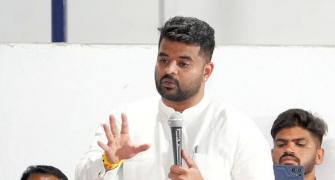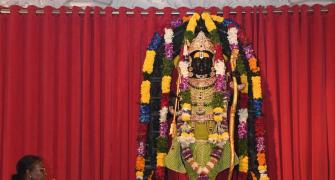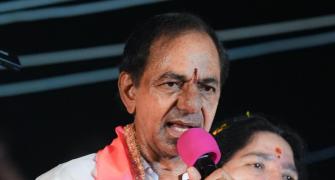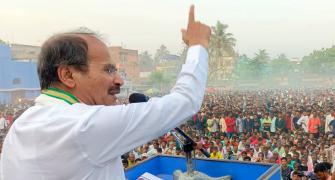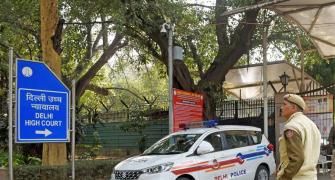The family later received a military letter confirming Toshio Morimoto's death on December 3, 1944 at the age of 30 on patrol in Boikin, a town in northeastern Papua New Guinea. But his body has never been recovered or identified.
"If it is difficult to identify each one of them, we should at least bring home as many of them as possible so they can rest in peace," said Kokichi Morimoto, 62, who has joined bereaved families fighting to identify the remains of lost soldiers.
As the 60th anniversary of the end of World War II approaches on August 15, Japan faces a grim reminder of the price it paid for its war of aggression in Asia: the government says half of the 2.4 million Japanese who died overseas have never been recovered.
And the odds are rising that they never will be properly accounted for. While families like Morimoto's hope recent advances in DNA testing could help, scientists say that much of the remains are so decayed that the effort is increasingly futile.
"It's been 60 years since the end of the war, and the remains ... have become so fragile they almost crumble when you touch them. They have almost turned into soil," Health Minister Hidehisa Otsuji told a recent Parliamentary committee.
"At one point we should conduct an intensive search and then draw the line," he added.
Of the Japanese who died overseas during the war, including 300,000 civilians, about 850,000 have been identified, most of them from China, according to the Health Ministry.
Another 350,000 unidentified remains were recovered and are interred as unknown soldiers at Tokyo's Chidorigafuchi memorial.
The rest -- about 1.16 million -- are scattered anonymously over the vast war zone, from the killing fields of Iwo Jima, Saipan, Okinawa in the Pacific, to Papua New Guinea in the south and Burma, Mongolia and the former Soviet Union in the west.
The bitter, bloody chaos of Japan's crushing defeat in the war contributed to the inability of Imperial forces to account for its own. Politics has also played its part: China and North Korea, still aggrieved over Japan's wartime invasions, block Japanese teams from conducting searches there.
The collapse of the Soviet Union, however, gave Japanese search teams -- comprised of war veterans, bereaved families and volunteers -- greater freedom to operate in Russian territory.
Interest over the years has been strong in Japan, where traditional reverence for ancestors places a premium on proper burial and establishment of gravesites for annual observances and prayers.
Morimoto is no exception. Just months after his retirement two years ago, he joined a government-sponsored trip to Papua New Guinea, where the group excavated a vegetable field and found more than 100 remains of unknown Japanese soldiers.
The remains were so decayed, however, that it so far has been impossible to determine if Morimoto's father was among them.
"The skeletons appearing from the soil just broke my heart," Morimoto said, recalling his October 2003 trip. "Just imagine how it must have been to be abandoned for so many years in the middle of nowhere so far away from home."
The effort is continuing. On Thursday, the remains of eight soldiers who died in the 1939 battle with the Soviets near the border between northeastern China and Mongolia were returned and were to be examined if they can be DNA-tested. More than 3,000 other soldiers are believed to be still buried at that battlefield.
Progress has been painfully slow. Since Japan introduced DNA testing for war remains in 2003, only 67 war dead have been identified. The effort has been hobbled in part by the lack of testing facilities in Japan able to handle such old remains.
Officials are also finding that interest is waning as the war fades further into the past and the survivors of war dead themselves grow old. Of 6,000 families asked to participate in DNA testing, only 1,000 responded.
But Keiko Tatsumi, 66, refuses to give up her hope to find her father Tatsuo. She has made several trips to eastern Papua New Guinea, where fellow veterans say Tatsuo Tatsumi was last seen alive 62 years ago.
Tracing her father's footsteps, Tatsumi also faced Japan's wartime past -- the hard way. Villagers have angrily told her how Japanese troops murdered their relatives.
But she says she eventually made friends with them after repeated visits.
"I just want to be where my father spent his final days," Tatsumi said. "I promised my father that I'll come back and look for him."

